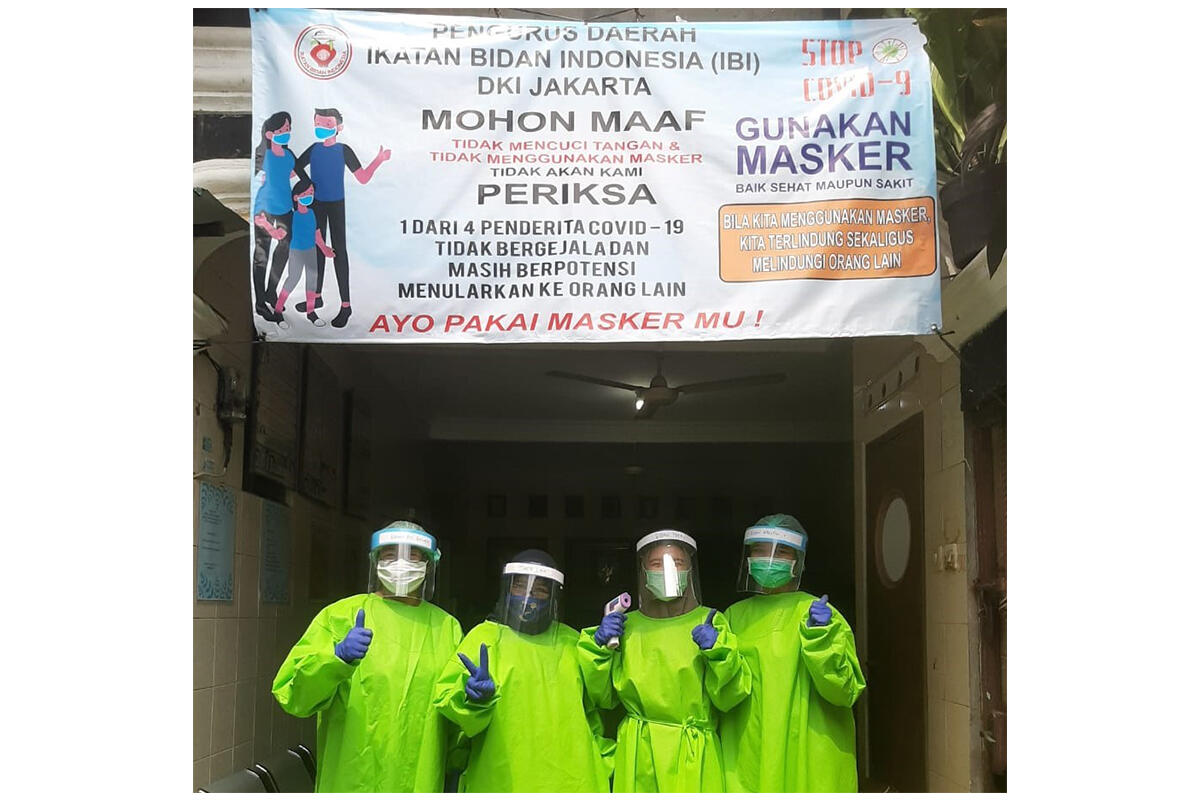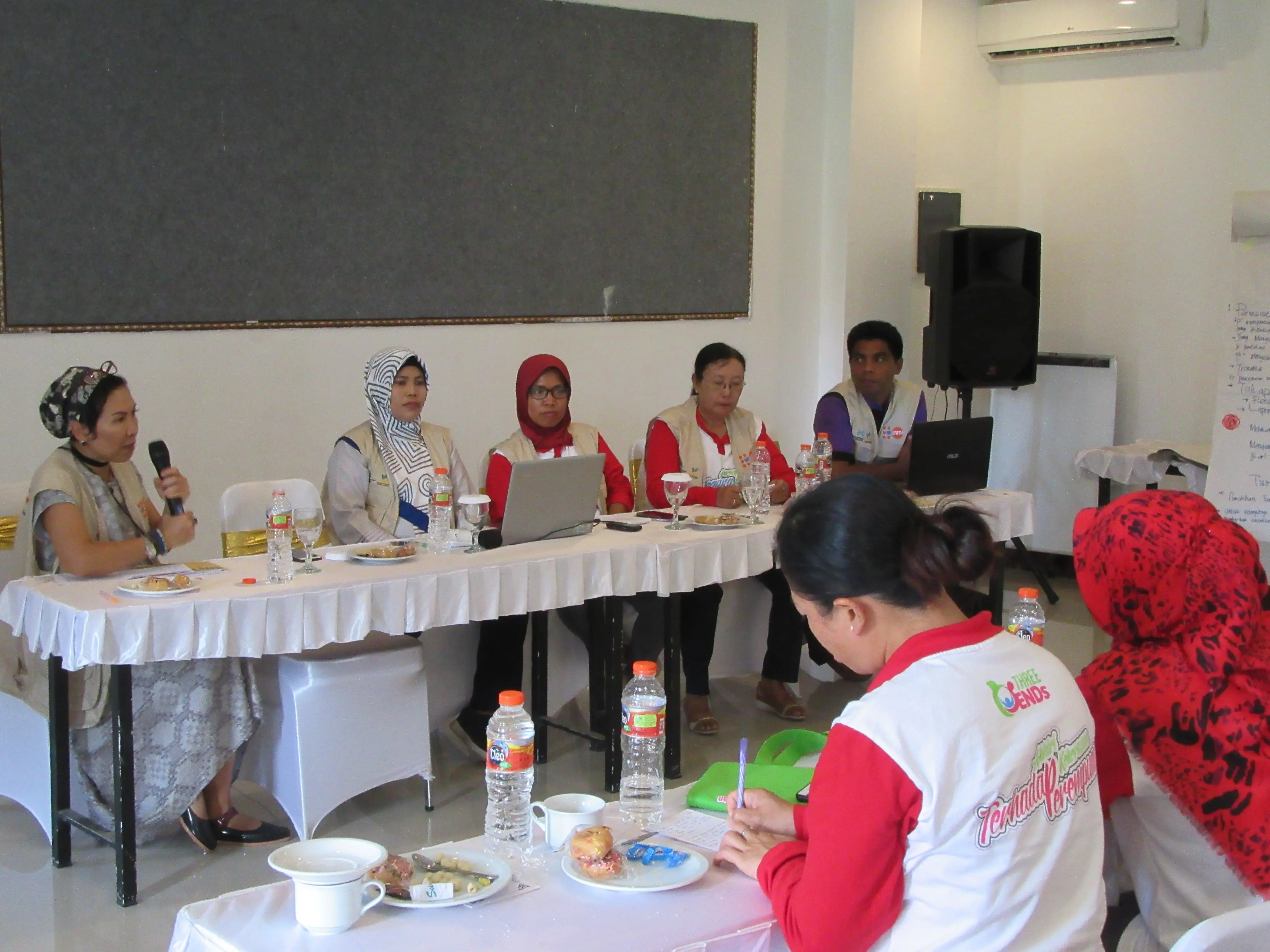Jakarta, 5 May 2020
"I feel safer to go to a midwife than to go to a hospital during the COVID-19 pandemic. The midwife is caring with thoughfulness. The midwife clinic is also clean and comfortable. They provide sanitizer, running water, and soap to clean our hands before entering the clinic", said Racih Setianingsih, a 35-year-old expecting mother in Jakarta. "Everyone, including patient and staff, should wear a mask. And there are not so many patients there", added Racih who will have her second child after thirteen years of spacing.
Racih is one of around 900,000 women who are expected to deliver in the next two months amid the COVID-19 pandemic. According to 2018 Riskesdas (Health Basic Research), 63% of the deliveries in Indonesia are assisted by midwives, 29% by OB-GYN specialists, and only 1.2% by general practitioners.
"Midwives play critical roles in maternal health services in Indonesia. Let alone, during the COVID-19 pandemic.There is an increasing trend for pregnant women to come to private practice midwives during this time. This is because women are worried about coming to the hospital and feel safe to come to private practice midwives who comply with the IBI guidelines as well as Ministry of Health (MoH) and POGI", said Dr. Emi Nurjasmi - President of the Indonesia Midwives Association (IBI) in her remarks during the commemoration of International Day of the Midwife (IDM), 5 May 2020 in Jakarta. The guidelines of IBI, MoH and POGI ensures the protection of both patient and the midwife and staff from the COVID-19.
"I put soap and running water in front of my private practice for the patient and other persons to wash their hands. My staff also measure their body temperature before entry. My staff and I use appropriate personal protective equipment.I try to comply with all guidelines", said Puji Rochana, a midwife in West Jakarta. "By doing this, my patients and staff including myself, feel safe in providing the maternal health and family planning services during the COVID-19 pandemic", she added.
Patient satisfaction is also very important in providing services, let alone during the pandemic situation.The individual patient should feel she is warmly welcomed by the providers. "During the midwives practice, I prioritze mother and baby affection care. I give a service that really puts first the feelings of the patient, as if I were a patient", said Suci Maesaroh, a private midwife provider in Bekasi, West Java.
Private midwifery practice is one of the topics discussed during the IDM webinar that was organized jointly by IBI and UNFPA, the United Nations Population Fund,on 5 May 2020. Around 2,200 midwives from around Indonesia attended the webinar.
The World Health Assembly has designated 2020 as the year of the Nurse and Midwife. "Now more than ever, we must take action to recognize midwives as steadfast champions for the sexual and reproductive health and rights of women and girls", said Dr. Natalia Kanem in her statement on the IDM. Three kinds of support can be provided to the midwives: acknowledging their roles in reducing maternal and neonatal morbidity and mortality, celebrating their achievement as front-line health workers responding to COVID-19, and advocating policymakers to invest on midwifery.
"Midwives are the primary caregivers, who are working tirelessly in communities, health centres, hospital wards, and in women's homes under difficult circumstances, often risking their own lives and wellbeing. If midwives are ill and dying in a health system overstrectched by COVID-19, they will not be available to care for pregnant women and their families. Therefore, their safety and wellbeing are important to ensure the essential reproductive health services are still provided with the highest possible quality of care", said Anjali Sen, UNFPA Representative in Indonesia during the IDM webinar.
------------
i. POGI - Perkumpulan Obstetri dan Ginokologi Indonesia - Indonesian Obstetrics and Gynaecology Society (pogi.or.id)




